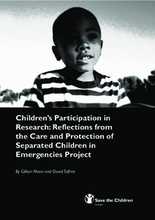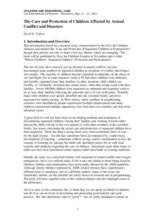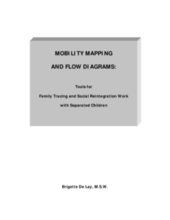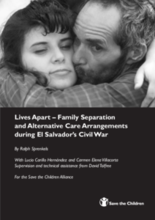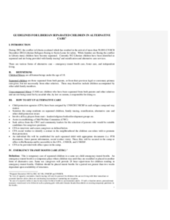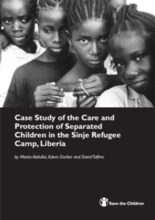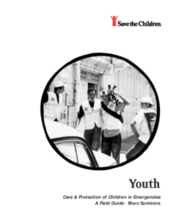Displaying 221 - 230 of 239
Discusses the psychosocial impacts of unstable situations on children and their families, with an emphasis on child development. Includes UNICEF’s position on policy and programming principles as well as strategies to address the psychosocial needs of children, families, and communities.
Paper described ways in which children separated in emergencies have been involved in research about their community and lives. It focuses on identifying the most appropriate and achievable way to involve children given the reality of their context and circumstances, and includes an appendix of specific games to encourage child participation.
Overview of a research study which provides guidelines for care of separated children in large-scale emergencies, focusing on the negative impact of residential care, extended family care, spontaneous and agency fostering, adoption, and alternative placements for adolescents.
Examines the link between education and the protection needs of children, with a particular focus on the role of education in emergency response.
Detailed guidance on using drawing with children to facilitate documentation and tracing efforts, as well as a tool for reintegrating separated children into families.
This report details the situation of disappearing children during the El Salvadorian civil war. It describes the process of tracing and reunifying children with their families, as well as alternative care arrangements for separated children.
Resource pack for a rigorous course on international legal standards for children. Includes notes for facilitators, participatory exercises, overheads, and handouts.
Guidelines and criteria for establishing and monitoring alternative care arrangements including emergency transit booth care (ETBC), foster care, and independent living for separated Liberian refugee children in Sierra Leone.
This paper outlines the response of Save the Children to the civil war outbreak in Liberia. Using the concept of child participation, the organization was able to address the needs of the children, which included family tracing and reunification, child protection and education.
An overview of the key challenges surrounding youth in crisis and the framework for dealing with these issues based on Save the Children principles in youth programming. Includes detailed examination of international programming examples.


